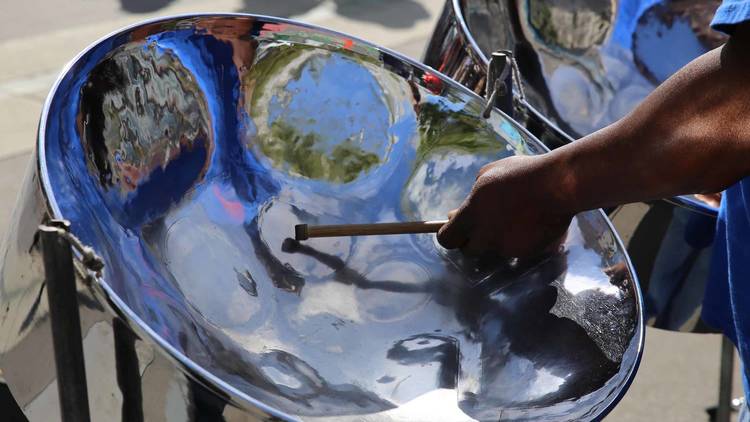
Ugliness can give birth to beautiful things.
It’s difficult to overstate the ugliness of the Caribbean sugar cane plantations of the 18th and 19th centuries. African slaves were forced to work in brutal conditions so middle-class Europeans could spoon sugar into their cups of coffee and tea.
The slaves clung to as much of their indigenous culture as they could. That included drums, which had traditionally been central to communication in central and west Africa. Drum sequences were like text messages. One tribe might say to another, “It’s going to rain soon,” or “The council meeting will happen the day after tomorrow.”
The nightly beating of drums in the New World terrified the plantation owners.
They had no means of cracking the percussion codes, and lived in terror of uprisings. Were the slaves using their drum riffs to plot revenge? Therefore the owners outlawed the playing of all musical instruments – a serious blow psychologically and spiritually to the slave communities.
The slaves of Trinidad exploited a loophole by beating out rhythms on bamboo rods, forming so-called “tamboo” bands. They also experimented with bits of discarded metal.
Long after the colonial era ended – and along with it the horrors of slavery – percussionists inherited an intriguing new source of sound. During World War II, American military quartermasters abandoned tens of thousands of empty oil drums around the Caribbean. Industrial waste was hardly what one would call a welcome gift. The barrels were worthless. But musical artists on Trinidad discovered that the dents, dings, and bulges on the metal surfaces produced various pitches when struck, and could be “tuned” to create whole scales.
Thus an entirely new musical instrument was born. Today it’s impossible to imagine “island music” – calypso and reggae, in particular – without the distinctive tonalities of steel drums.
Here’s a local artist demonstrating that discarded trash can sometimes be transformed into something beautiful: Steel Drum – UB40 Red Red Wine by Dano’s Island Sounds – YouTube
The least becomes the greatest. The worthless becomes priceless. The overlooked becomes the key to the whole story.
That subtheme reverberates in virtually every book of the Bible.
God creates human beings from dirt. The rag-tag descendants of a senior citizen become his Chosen People. The Israelites, knocked back and forth like a shuttlecock by the major powers of the ancient world, never seem to figure out how to obey God. The Messiah launches his global mission with twelve apprentices who are anything but the brightest and the best. What do Jacob, Moses, Gideon, David, Jeremiah, and Peter have in common? They are also-rans. Or flat-out failures. But they become God’s point people.
One scholar has suggested that the Bible’s primary storyline can be summarized in seven words: To All By Means of the Least.
Jesus is no exception. Here’s how the prophet Isaiah looks ahead to the Messiah: “He was despised and rejected by mankind, a man of suffering and familiar with pain. Like one from whom people hide their faces he was despised, and we held in him low esteem” (53:3).
Yet the rejected one saves the world.
If you’re feeling unnoticed, ungifted, and unwanted these days, remember that God can transform what others consider worthless into something beautiful.
Which means he can still make music out of your life.
